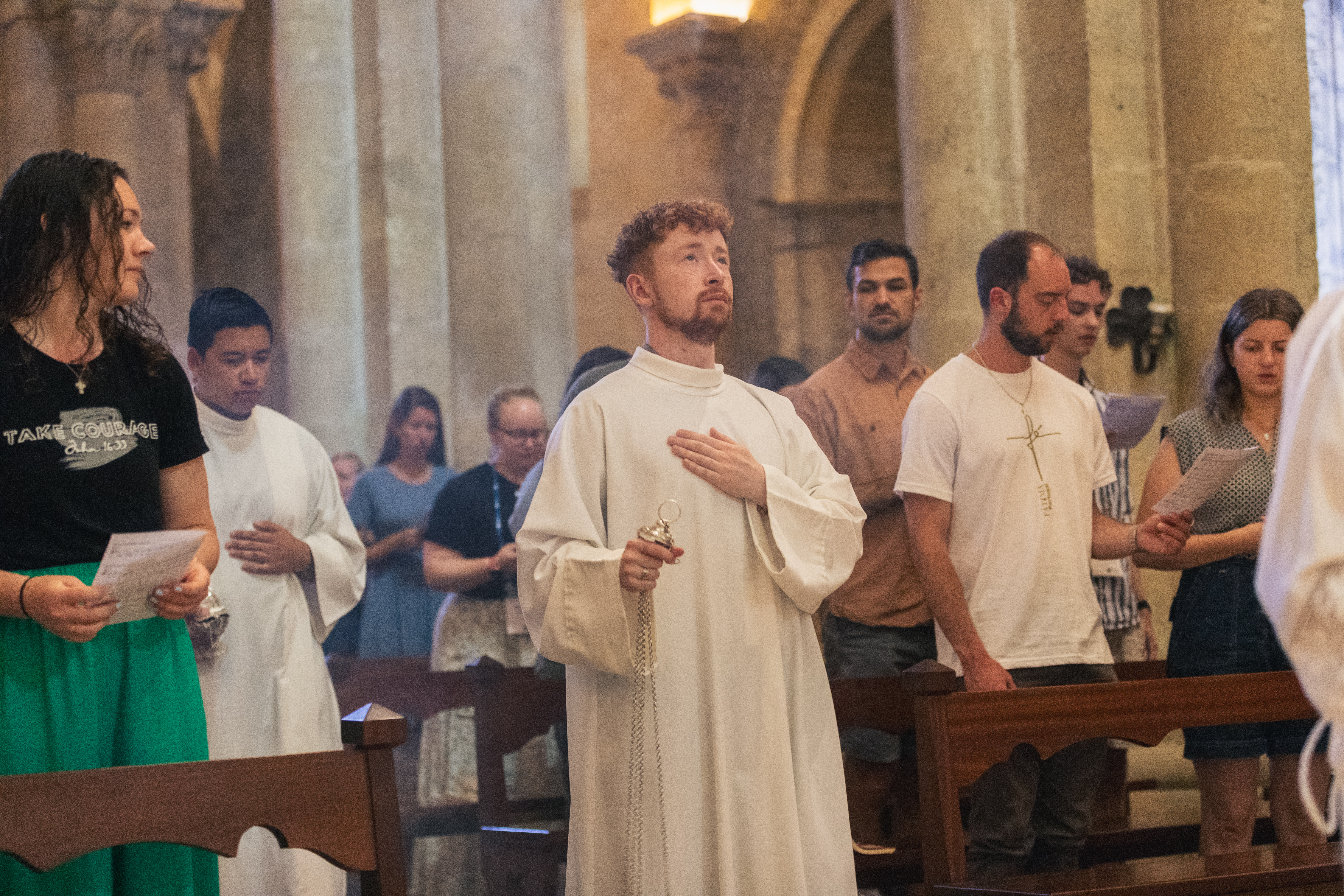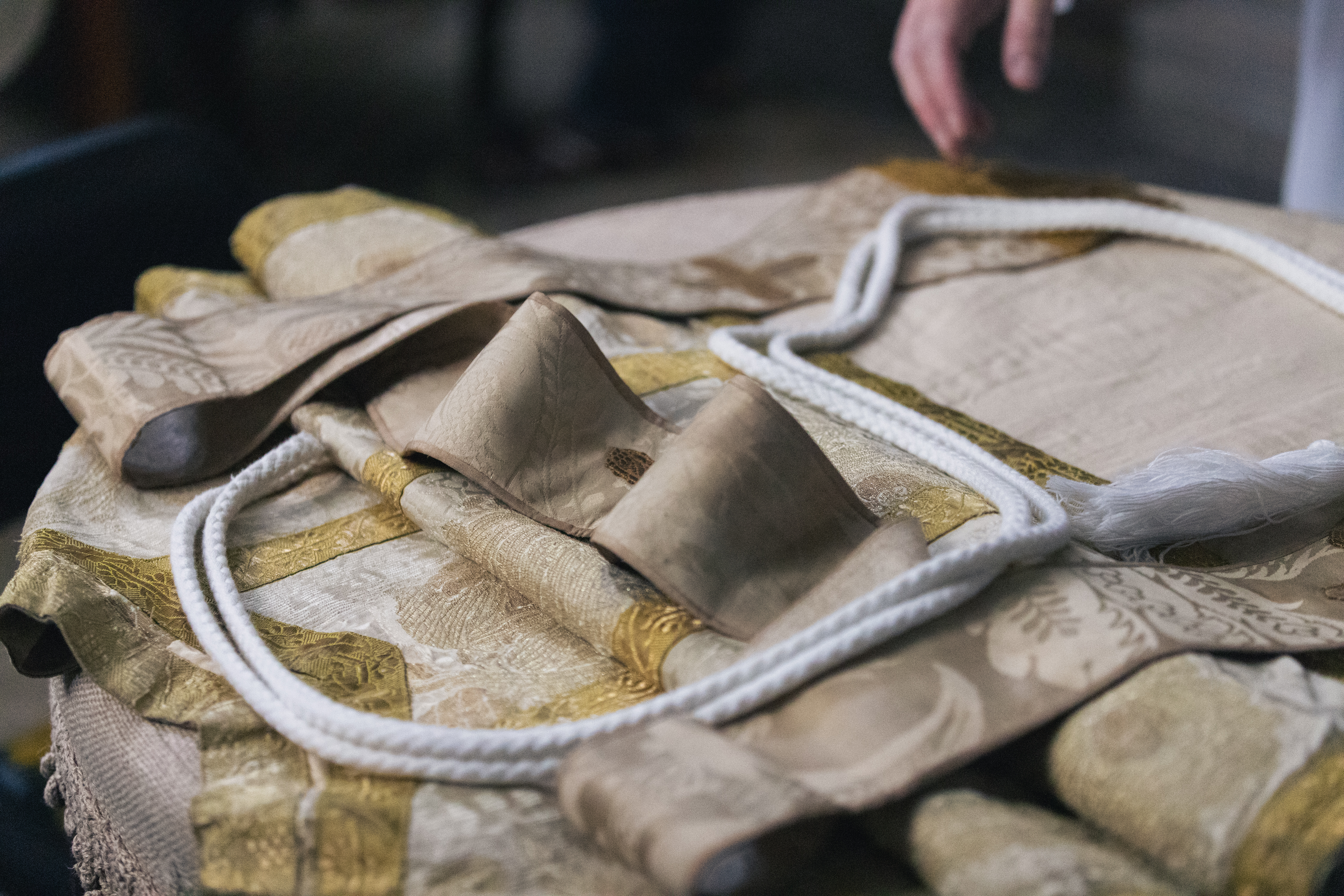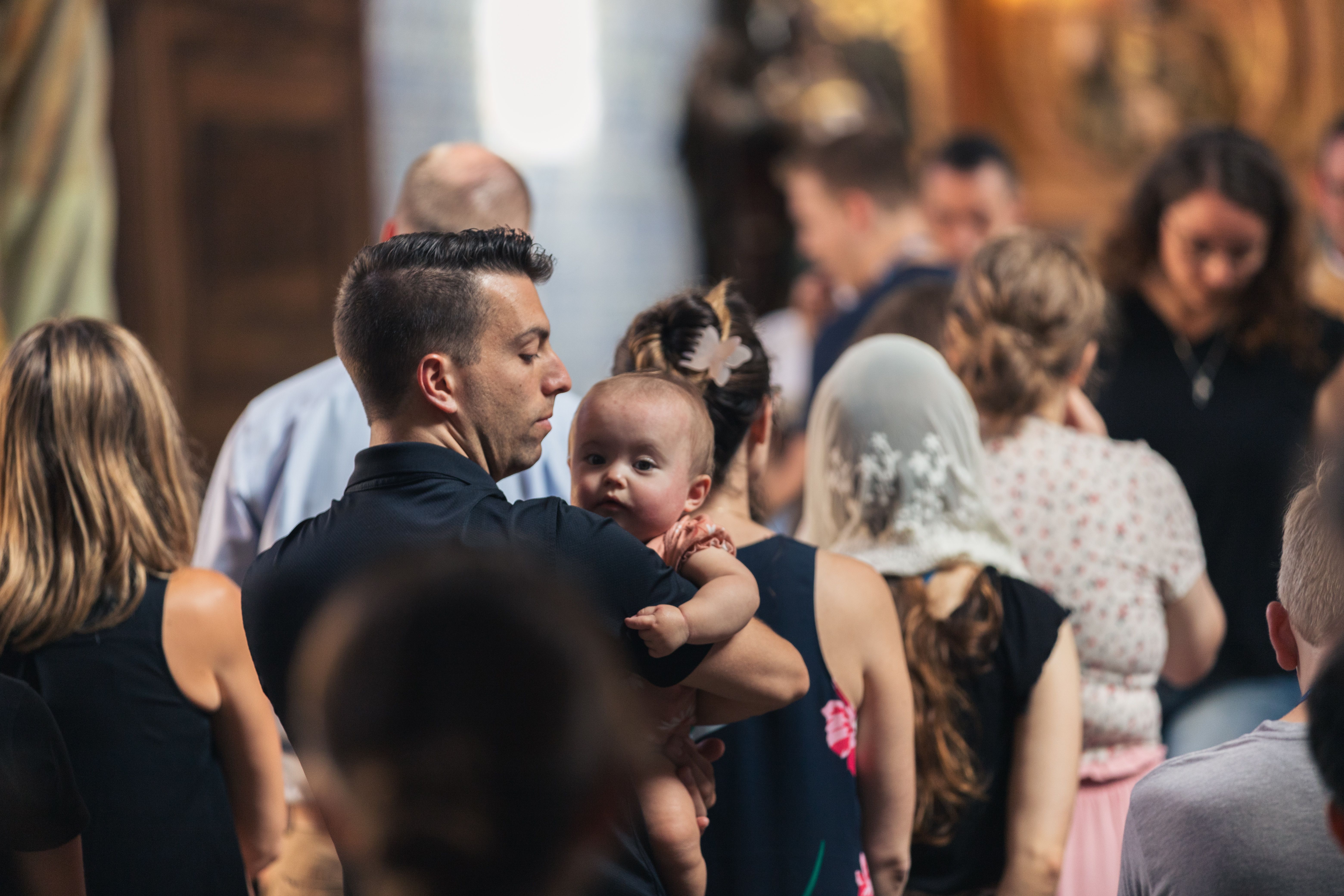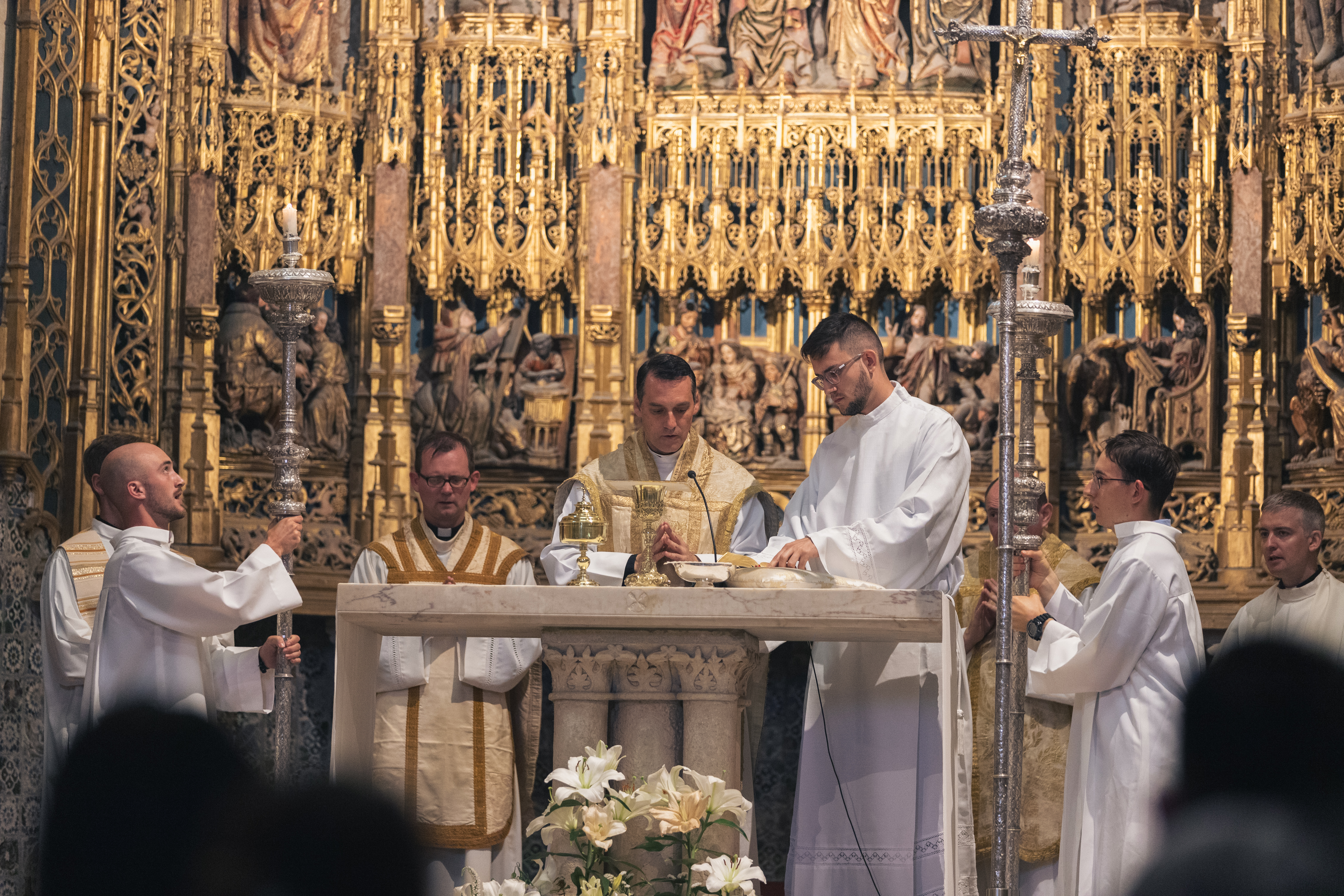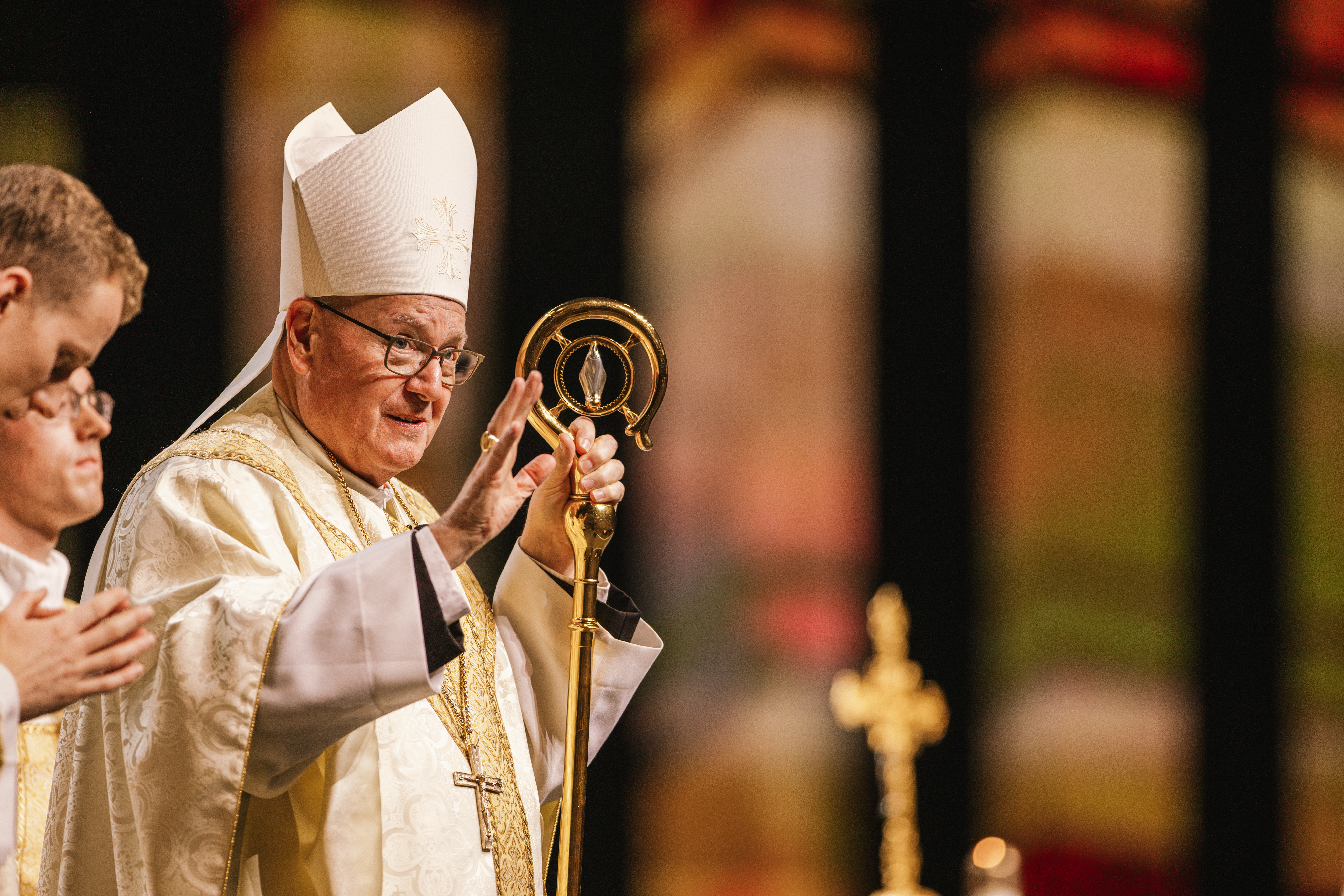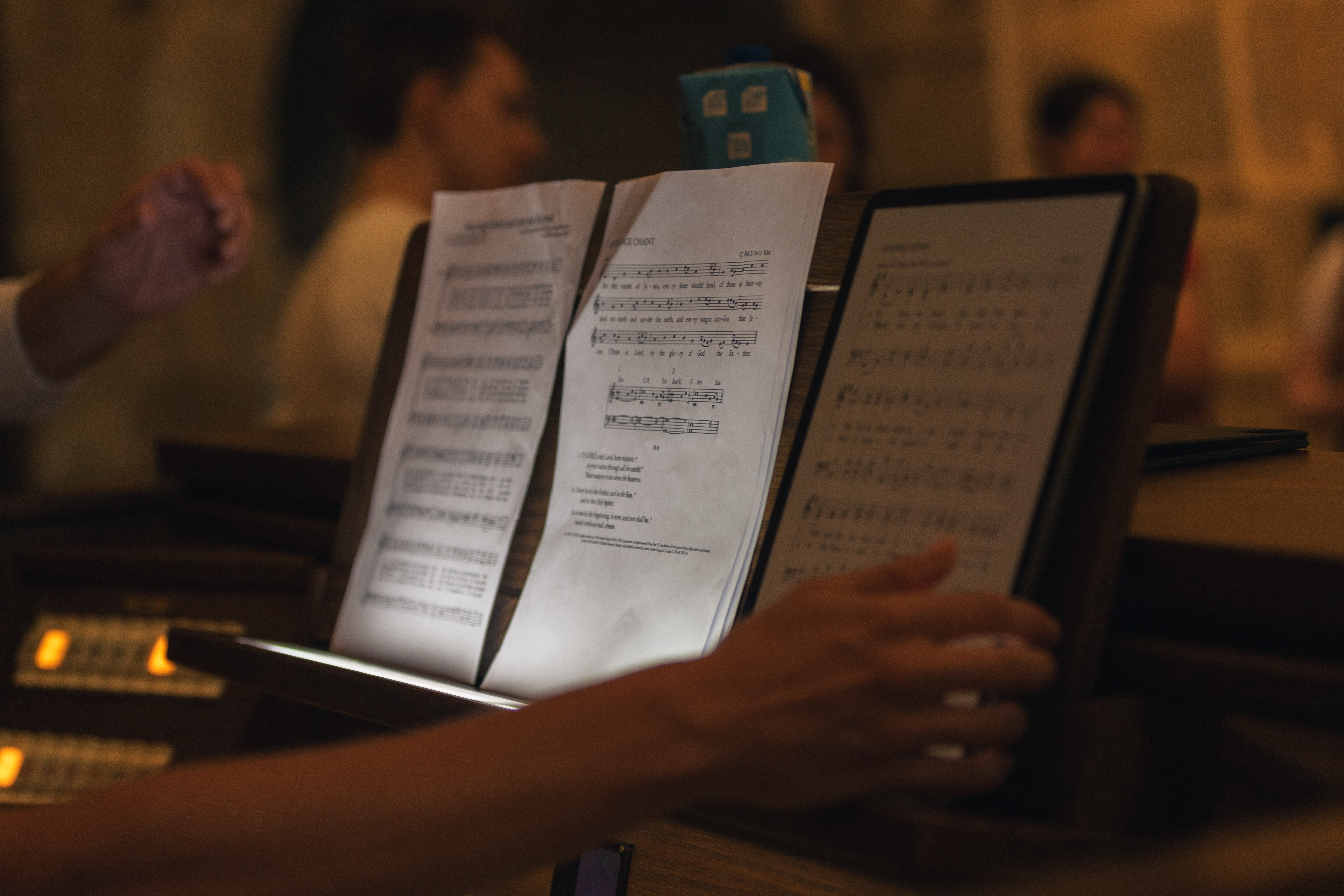Have you ever left Mass thinking, “I didn’t get anything out of it?” Maybe the homily didn’t inspire you, the music didn’t move you, or you simply felt bored. You’re just left wondering how to pay attention in Mass. If so, you’re not alone—but here’s the key: that’s not the primary purpose of Mass. Understanding the Mass as a form of Catholic worship means recognizing it’s not about entertainment or education. It’s about what you offer, not just what you get. It’s a sacrifice—our opportunity to unite ourselves with Jesus Christ, the ultimate offering to the Father.
Engaging More Deeply During Mass
Not knowing how to pay attention in Mass can often stem from a lack of understanding or connection with the ongoing liturgy. Here are some practical ways to find more meaning and engagement during Mass:
- Active Participation: Engage more actively by responding during the liturgy, singing the hymns, and really listening to the readings and homily. This active involvement can transform your experience.
- Understand the Rituals: Learn about the significance of each part of the Mass. Knowing why things happen can deepen your appreciation and stave off boredom.
- Volunteer: Serving as a lector, usher, or choir member can provide a new perspective on the importance of each Mass and increase your sense of community and responsibility.
- Prayerful Preparation: Spend a few minutes in prayer before Mass begins. Reflect on the readings ahead of time or participate in a pre-Mass discussion group if your church offers one.
- Bring Intentions: Come to Mass with specific intentions. Praying for others or for personal guidance during the Mass can give your participation more purpose and focus.
The Challenge of a Consumer Mindset
It’s easy to approach Mass with a consumer mindset, expecting to be filled or inspired. However, the essence of Mass is about giving and not just getting.
Imagine a first-century Jewish family bringing a lamb to the Temple for sacrifice. They didn’t come to “feel something” but to offer their very best to God. At Mass, we are invited to bring our own sacrifices—our joys, sorrows, and even our frustrations—and unite them with Christ’s ultimate sacrifice on the altar.
Finding Value in the Struggle
Even when you’re not fully present—perhaps distracted by a crying baby or overwhelmed by your busy schedule—remember that your very act of being at Mass is a sacrifice in itself.
Before attending Mass, set a straightforward goal for yourself, such as focusing on a particular part of the liturgy, and view these efforts as personal offerings to God. When faced with frustrations, consciously offer these struggles as sacrifices, using them as a form of prayer for the souls in need or for personal intentions, thereby transforming your challenges into acts of spiritual significance. Most importantly, embrace the imperfections in your spiritual journey, understanding that God does not demand perfection but values your continued effort and trust. Through these practices, you can find deeper meaning and grace in the routine and challenges of daily life. Parents, especially, might feel like they’re just getting through the liturgy, but even this effort can be offered to God. Your presence, your perseverance, and your efforts are acts of love that honor Him.
The Reciprocal Nature of Mass
What’s remarkable about the Mass is that even as we come to give, God never fails to give back. Here’s how:
A Call to Shift Focus
Next time you attend and want to know how to pay attention in Mass, shift your focus from “What am I going to get out of this?” to “What can I give?”
Bring your joys and burdens to the altar. Offer your heart, your life, and even your distractions as a sacrifice. Remember, you are invited to unite your sacrifices with Christ for the glory of the Father and the salvation of the world.
FAQ: How To Engage in the Mass
1. What should I do if I feel nothing during Mass?
It’s common to feel this way occasionally. Focus on the prayers, the readings, and your personal intentions, trusting that your participation is valuable even if you don’t feel emotionally gratified. Find books or videos that focus on the parts of the Mass, and the significance of the Mass to deepen your understanding.
2. How can I become more active during Mass?
Participate in the responses, sing the hymns, listen attentively to the readings and homily, and consider volunteering as a lector, usher, or choir member to deepen your Catholic worship experience.
3. Why is Mass considered a sacrifice?
Mass is a sacrifice because it makes present Jesus Christ’s sacrifice on the cross. The bread and wine become His Body and Blood, which are offered to the Father as Jesus offered Himself. We can join in offering our own sacrifices, especially when we find it hard to be completely engaged.
4. What is the best way to prepare for Mass to fully appreciate its meaning?
Prepare by praying before Mass, reflecting on the day’s readings, and confessing any sins. Entering Mass with a prayerful and open heart can significantly enhance your experience.
5. Can non-Catholics participate in the Mass?
Non-Catholics are welcome to attend and participate in the prayers and songs but should not receive the Eucharist. They can receive a blessing during Communion and fully experience the beauty of the liturgy.
Additional Resources
Read more about the Mass with Fr. Mike Schmitz here and here or delve into his talks from SEEK24 on our Youtube page.
Learn more about the sacraments on our blog: The Confession FAQ You’ve Always Wanted, Why Do Catholics Go to Adoration?, and Why Do Catholics Go to Confession?
